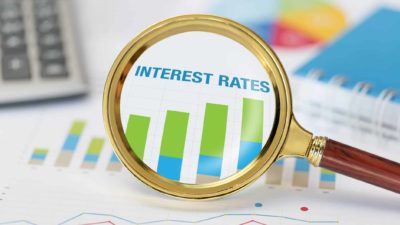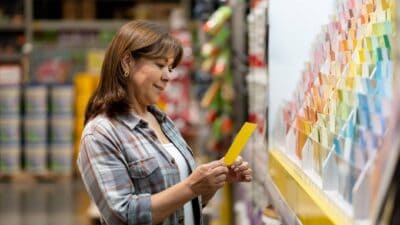The medical device industry includes any device which can diagnose, prevent, or treat a disease or other condition. Examples range from bandages and syringes to pacemakers and prostheses. These technologies save and improve lives by detecting diseases earlier and providing more effective treatment options. The global medical device market is expected to grow to over $521 billion by 2022.
Australia's healthcare market is sophisticated and receptive to new products. The aging population, federal budget initiatives, and a willingness to adopt new technologies are expected to drive growth in the medical device market. Goldstein Market Intelligence forecasts the Australian medical device market will grow at a compound annual growth rate of 10% between 2017 – 2030. Globally, economic growth, increasing prevalence of chronic diseases, and technological advances will also drive growth. Here we take a look at two ASX medical device shares with promising developments in the use of their devices.
Avita Therapeutics Inc (ASX: AVH)
The Avita Therapeutics share price has been down over the past week or so despite news on Monday that its RECELL System is being procured by the United States Department of Health and Human Services to build preparedness for public health emergencies. US sales in the fourth quarter were disappointing, increasing just 0.2% to US$3.79 million. Results were negatively impacted by the onset of COVID-19.
What does Avita do?
Avita is a regenerative medicine company with a technology platform that can be used in the treatment of burns, chronic wounds, and for aesthetic applications. Avita's devices utilise the regenerative properties of a patient's own skin. A suspension of the patient's skin cells is prepared and then sprayed onto areas requiring treatment.
The company's first product, the RECELL System, was approved by the FDA in late 2018. The system is used to treat thermal skin burns using spray on skin cells. Data from more than 8,000 patients globally reinforces that the RECELL System is a significant improvement over current standards of care, offering better clinical outcomes and cost savings.
Fourth quarter challenges
During the fourth quarter, the company faced the most challenging commercial conditions since the RECELL System was launched. Variability in both revenue and procedural volumes was observed. Although burns treatment is not an elective procedure, the incidence of burn injuries decreased due to nationwide protective orders.
The re-prioritisation of hospital resources to support COVID-19 patients meant that April saw the lowest monthly revenue and procedural volumes so far this calendar year. Growth recovered, however, in May and June thanks to the benefits of the RECELL System in reducing hospital stays and allowing for fewer and smaller surgeries.
CEO Mike Perry said, "Despite the tough macro environment, the clear benefits of the RECELL System including shortened length of hospital stays, together with less invasive and fewer surgeries, continues to resonate with hospitals, physicians, and patients."
Strong outlook
While Avita experienced a difficult fourth quarter, full year results were impressive. Total sales were approximately $14.32 million, an increase of US$8.78 million or 160% over the previous year. RECELL System sales were US$13.79 million, up 213% over the prior year.
Avita is looking to expand therapeutic uses for the RECELL System as well as its geographic reach. The FDA has approved a pivotal study into the use of the RECELL System to treat vitiligo. Avita is confident it will be an effective offering. More than 1,000 patients have been treated outside the United States, and eight publications have attested to the benefits of the system in treating the condition.
Regulatory approval for the RECELL System is being sought in Japan. The application has been delayed somewhat by the pandemic, but further testing data is expected to be submitted in August. In the United States, FDA approval of the next generation RECELL 2.0 is expected in mid 2021 which will assist with market access in the outpatient hospital setting.
Polynovo Ltd (ASX: PNV)
The Polynovo share price is up 79% from its March low. Currently trading at $2.36, Polynovo shares remain below the all time highs of above $3 seen in February. Polynovo has seen strong sales of its Novosorb BTM product recently, with the company predicting that FY20 product sales will at least double FY19.
What does Polynovo do?
Polynovo is a medical device company that develops and manufactures dermal regenerative solutions using patented biodegradable polymer technology. Its NovoSorb BTM product is a dermal scaffold used to regenerate the dermis when lost through extensive surgery or burns.
Strong US sales
June 2020 was a new record sales month in the US for Polynovo. Despite the adverse impact of COVID-19 on many businesses, Polynovo has had success in opening new accounts and achieving record sales. Between July 2019 and 30 June 2020 there has been a 67% increase in hospital accounts in the US. Overall, sales in the June quarter were 33% higher than the March quarter.
In the United Kingdom, Polynovo recently announced its first sale. There have been six operations in England and Scotland with further sales anticipated. There have also been numerous applications of NovoSorb BTM in Germany, Austria, and Switzerland, with sales growing as traction is gained across the region. Managing Director Paul Brennan said, "These sales results for NovoSorb BTM are very strong given the difficulties faced with COVID-19".
Polynovo outlook
Polynovo estimated the dermal scaffold market in which it operates is worth $1.5 billion and growing at a compound annual growth rate of 10%. The company owns 51 patents for various uses of its polymer technology platform. It also plans to enter the hernia and breast augmentation/reconstruction markets in the near future.
The hernia devices market is estimated to be worth $3 billion, with demand for synthetic resorbable products growing at a compound annual growth rate of 34%. Polynovo is building a factory in Port Melbourne to manufacture hernia products which is expected to be completed this month. Polynovo is planning on entering the US market in July/August 2021.
Chairman David Williams said, "Sales are still lumpy but there is a strong upward trajectory as surgeons embrace our product and the patient results it gives. While FY20 sales will show impressive growth over FY19, the sales run-rate is more impressive and should be a better indicator of the near term future."








